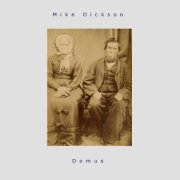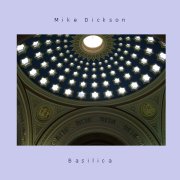




 |
 |
 |
 |
 |
 |
Six Consequences (2007, 66.31) ****/TTTTT |
|
| Consequences (White) The Hammer Looks Back (for Milan) Consequences (Orange) Vulture Consequences (Violet) Stroke #2 Consequences (Ultramarine) Trois Gymnopedies I |
Trois Gymnopedies II Trois Gymnopedies III Consequences (Sienna) Codetalking Consequences (Black) Vortex |
|
 |
Domus (2007, 56.56) ***½/TT½Cranmillion (Elle est la Fée Verte)For a Brief Second Time Just Stood Still Metamorphosis I Metamorphosis II Metamorphosis III Metamorphosis IV Shutter on the Scene Serendip |
 |
Honfleur: The Music of Erik Satie (2008, 64.33) ****/TTT½ |
|
| Gnossiennes No. 1 Gnossiennes No. 2 Gnossiennes No. 3 Gnossiennes No. 4 Gnossiennes No. 5 Gnossiennes No. 6 Trois Gymnopedies I Trois Gymnopedies II Trois Gymnopedies III |
Ogives No. 1 Ogives No. 2 Ogives No. 3 Ogives No. 4 Sarabandes No. 1 Sarabandes No. 2 Sarabandes No. 3 Vexations |
|
 |
In Excelsis (2008, 73.03) ****/TTTT½Why Fum'th in Fight?An Gregori Voider Chimera Sullen Excelsior Azure Spem in Alium |
 |
Mellotronworks (2008, 48.24/67.48) ****½/TTTTT |
|
| Mars, the Bringer of War Adagio in G Minor Adagio for Strings Air on the G String Canon in D Major Fantasia on a Theme By Thomas Tallis ['Reissue' adds: Also Sprach Zarathustra |
Nimrod (Enigma 9) Sheep May Safely Graze Moonlight Sonata Hallelujah Chorus] |
|
 |
Basilica (2011, 69.36) ****/TTTT |
|
| O Fortuna Stygian Madeleine Arrival of the Queen of Sheba Ab Sense Salvator Mundi O Nata Lux In Nomine (II) |
O Sacrum Convivium When Shall My Sorrowful Sighing Slack? Gloria Patri Pour Forth Thy Spirit FM1SM Threnody |
|
 |
Orbis (2011, 76.59) ***½/TTT |
|
| Widor Symphony Number 5 In the Platinum Room Candyman (it Was Always You, Helen) Aglaopheme Hyperbola Lost Nation (Dreamtime) Lickerish Scarborough Fair (Canticle) |
Shenandoah Rooms Greg |
|
 |
Mellotronworks II (2012, 79.39/86.30) ****½/TTTTT |
|
| Fanfare for the Common Man Fratres Cantus in Memory of Britten Spiegel im Spiegel Dance of the Knights Fantasia on Greensleeves Jerusalem Pomp & Circumstance |
Pavane Symphony no. 3 Ode to Joy Bolero ['Tasters': Cavalleria Rusticana (Intermezzo) Ride of the Valkeries] |
|
Current availability:
Mellotrons used:
Mike Dickson is (now was) the British (OK, Scottish) member of international electronic/world/prog trio Systems Theory and its sole Mellotron owner, not to mention 'official cynic' of Streetly Electronics, a.k.a. Martin Smith and John Bradley. The first three albums here were produced in a burst of creativity in the mid-2000s and made available for absolutely sod-all by Mike, so the least you can do is download them for yourself.
The earliest in the series, Six Consequences, is a mixture of works-in-progress for the fourth Systems Theory album, other bits'n'pieces and Mike's interpretations of Erik Satie's Gymnopedies. The six Consequences tracks of the title are all exceedingly brief (thirty-odd seconds, on average) and grew out of Mike's idea for a series of short pieces to be worked on by all three members of Systems Theory, with the intention of joining them together when they were complete. As he couldn't find a way to make that work, he's used them as linking pieces here, although the abrupt beginnings to some of them (notably the first, Consequences (White)) can be slightly startling. The longer pieces veer between 'standard' electronic (you know, sounds like The Tangs) through to techno-influenced closer Vortex, with its distorted synths and weird percussion. The album's most unusual tracks have to be the Satie pieces, though. You think you don't know them? You do. They've been used in adverts and as TV background music since at least the '70s, cheapening them considerably in the process, but hey, that's the modern world, right? Mike's Mellotron-heavy arrangements for them are quite beautiful, proving that rearrangements of familiar pieces can sometimes make you listen to them with fresh ears.
Anyway, you want to know about the Mellotron, don't you? Mike owns an M400 with multiple tape frames and uses it on every damn' track here, not just the 'standard' strings/flutes/choirs (although there's plenty of them to be heard), but chamber woodwinds, oboe, church organ, brass, cor anglais and several variants on familiar sounds, not to mention a couple of brief snippets of MkII accompaniments. Highlights are hard to pinpoint, although the choirs on Vortex are clear as a bell (nothing like my worn old tapes, then) and some of the woodwind parts, although quiet, are quite haunting.
Mike describes his follow-up, Domus, as 'sparse and restrained', in which he is absolutely correct. The album is based around its four centre-piece tracks, Philip Glass' Metamorphosis I-IV, while Dickson's own material is, quite knowingly, influenced by Glass, even if it turns out somewhat differently. Maybe surprisingly, it isn't until Metamorphosis IV that you can actually tell they're Glass pieces, although whether that's down to the original composition of the first three parts or Dickson's arrangements is unknown. Overall, this is far more laid-back than Six Consequences, although that was always going to be the case. In keeping with Mike's minimalist approach, there's far less Mellotron here than on its predecessor. Very clear choirs on the three highlighted parts of Metamorphosis and far more muted ones on opener Cranmillion (Elle Est La Fée Verte), making a very marked difference from the multiple parts and sounds on Six Consequences.
A mere few months later and Dickson's at it again; Honfleur: The Music of Erik Satie is Mike's interpretations of, er, Satie, this time a whole album's-worth, reiterating the Trois Gymnopedies from Six Consequences for the sake of completeness. Do they work, rearranged? 'Course they do; music this simple (which isn't to say it isn't complex - work that one out) lends itself to reinterpretation perfectly, probably due to the spaces left in the original scores. Now, I won't pretend I know all these works well, or indeed at all in some cases, which may be to my advantage as a reviewer; since I'm sure Mike has recorded only the notes on the score, the genius lies in the instrumental combinations used, although, of course, he's not the first to orchestrate Satie, as Debussy got there slightly earlier. All tracks work well, although the highlight for me is the grandiose Ogives No. 2, which I'm sure Mike will be horrified to read put me in Prog Heaven for a few minutes (watch him remove the track from his website pronto). By and large, more subtle Mellotron use here, with faint (and very Genesis) choirs on Ogives No. 1, although the strings and choirs on No. 2 are vast, contributing to its status as Thompson's Favourite Track. Apart from the previously-reviewed Gymnopedies, Mike's other Mellotron use here seems to be fairly background strings and choir, leaving Six Consequences as his undisputed Mellotron Album. So far...
Later that same year... Late '08 and Mike's 'released' two albums at once, In Excelsis and Mellotronworks, the latter played essentially entirely on Mellotron. In Excelsis is a mixture of pieces, with two gorgeous Thomas Tallis compositions (sorry, no autographs - he died in 1585) bookending several of Mike's own compositions, several of which bear some resemblance to Systems Theory. Much of the material is effectively rhythmless, although sequenced marimba-alikes lurch around here and there, drinking, farting and making a general nuisance of themselves. Mellotronically, every track features the beast, with Tallis' Why Fum'th In Fight? being almost entirely 8-choir, which seems to be Mike's favourite Mellotron sound. The fact that this brings him into line with most of the '80s British prog movement will surely appal him. The detailed note's on Mike's site list the sounds used, track-by-track, but other standout Mellotron moments include a brass part on Sullen that shows lesser talents how to arrange for this most formidable of Mellotron sounds, doubled with completely full-on strings, more strings and choirs in Excelsior, alongside a real string section and the multiple choir variants on the other Tallis piece, Spem In Alium, although I suspect the ones that almost fool the ear into thinking they're real are the sampled ones.
Mellotronworks not only contains more Mellotron than you can possibly imagine (and I can imagine a lot), but is also Mike's versions of various classical pieces, mostly well-known, all working well played on a Mellotron (and there are many, many that don't). I wasn't sure I'd know them all, but they're all immediately recognisable and, frankly, near-impossible to criticise, unless you're of the opinion that "Only [such-and-such] is 'proper' music", in which case you have no bloody business criticising anything until you grow up a bit. Unsurprisingly, slower, more stately pieces work better, although Mike freely (gleefully?) admits to cheating a bit in places, altering motor speeds to stretch the machine's thirty-five-note range into something more useable for orchestral pieces, also allowing him to play faster sections in places. It's hard to say what works best, although Pachelbel's Canon In D Major and Vaughan Williams' Fantasia On A Theme By Thomas Tallis possibly have the edge over the rest. The Mellotron brass in Holst's Mars, The Bringer Of War semi-reclaims the piece from King Crimson's bonkers take on it, while the last four tracks feature exclusively many variants on the string part of the orchestra, with no fewer than fifteen different tape sets; I mean, how many tape frames has this man got? Anyway, if you want to hear some of the most full-on Mellotron work ever committed to, er, sound files, download this immediately. And if you're allergic to classical music, get over it. p.s. Mike has 'reissued' the album with five extra tracks, four of which work extremely well, although the choirs on Bach's Hallelujah Chorus are a little 'choppy', unsurprisingly.
Mike's latest offering (and last for a while, he says), 2011's Basilica, combines more of his adaptations of classical works with several of his own pieces, to slightly schizophrenic effect. Opening with Orff's O Fortuna (not, as Mike says, actually the piece used in the awful Omen), he shifts gear abruptly into Stygian, a piece as dark as its name, following with Madeleine, a heavy reworking of Domus' For A Brief Second Time Just Stood Still. All of which makes his spot-on Wendy Carlos impersonation (so to speak) on Handel's Arrival Of The Queen Of Sheba (a very familiar piece to anyone who's spent any appreciable amount of time listening to, or at least, hearing classical music) all the more startling, arranging it for Moog(s) and massed string synths. Salvator Mundi through to Pour Forth Thy Spirit come under the general heading of 'Seven Pieces by Thomas Tallis', proving for once and for all that this underrated composer's work needs, nay, demands a wider audience. Mellotronically speaking, it's on most tracks to one degree or another, more notable use including the wonderfully excessive choirs on Orff's O Fortuna, Stygian's strings, the woodwinds on Salvator Mundi, choirs on O Nata Lux and various strings on O Sacrum Convivium.
Orbis, released later in 2011, proves Dickson a liar, although this time he promises there's nothing else in the vaults. It's a mixed bag, opening with a rendering of Widor Symphony Number 5, shifting gear sharply into a projected Systems Theory piece, In The Platinum Room, more dance than classical, before tackling a Philip Glass soundtrack piece. Get the idea? Eclecticism is clearly the order of the day, but then, Mike's already told us the album's a bit of a cupboard-clearing exercise and anyway, you're not paying for it, so shut up. Other notable material includes the insanely Mellotron-heavy Lickerish, beautiful versions of Scarborough Fair (Canticle) and Shenandoah and twenty-five minute (sort of) ambient piece Rooms. Closer Greg (Mike's farewell to System Theory's guitarist, who died in 2009) is surprisingly upbeat, all things considered, sounding more soundtracky than just about anything else here. Mellotron on all, although whatever's hidden away on some tracks is, well, fairly well hidden, top Mellotron tracks including Lost Nation (Dreamtime), the aforementioned Lickerish (both strings) and Shenandoah (choir).
It would appear there's no stopping the Dickson: 2012 brings a purchase of a new/old Mellotron (Crack the Sky's old MkV, actually), which seems to have invigorated Mike enough to inspire him to record Mellotronworks II. Unsurprisingly, it's a direct follow-up to its predecessor, featuring naught but Mike's mostly-Mellotronic reworkings of classical pieces, many familiar, some possibly overly so, although I think we can forgive him his populist tendencies. This time. The set opens with Aaron Copland's Fanfare For The Common Man, partially rescuing it from ELP hell (I actually like their version, but you know what I mean...), followed by three Arvo Pärts and some more familiar Mahler, Blake, Elgar, Ravel and Beethoven, amongst others. Mike tackles all concerned with aplomb, helped considerably by his new machine, with its vastly improved action, although many of the recordings were made using his M400. Highlights include the aforementioned Fanfare, the Pärts, the Beethoven and the quite unrelenting quarter-hour Bolero, but, despite the album's length, you get the feeling that he couldn't bear to leave anything off and rightly so. Mellotron? All over everything, of course, although Mike uses samples (No, fool, not Mellotron ones) judiciously, not to mention at least two occasions where the machine's cabinet is mic'd up for special FX. Again, highlights? The brass use on several tracks is brave, but just about works (you try dong anything with those badly-tuned monstrosities), while the choirs on Jerusalem are a thing to behold. Mike uses so many voices on many of the tracks that they stop sounding like a Mellotron, which is a shame, but I know he's going for fidelity (I use the term loosely, of course) over 'Mellotronicity', while remaining mostly faithful to the instrument's quirks.
Since Mike's giving these away, you'd be foolish not to take him up on his offer, as they're excellent both musically and Mellotronically, not to mention a plethora of other instruments Mike seems to have mastered, including celeste, harp and various percussives. Normally I'd say 'buy', but in this case it's... Download! Incidentally, the reason these reviews are here and not on the Unreleased page is that, er, they're not actually unreleased per se. They might be downloads, but so long as Mike chooses to keep them on his site, they'll stay here.
See: Systems Theory | Unreleased